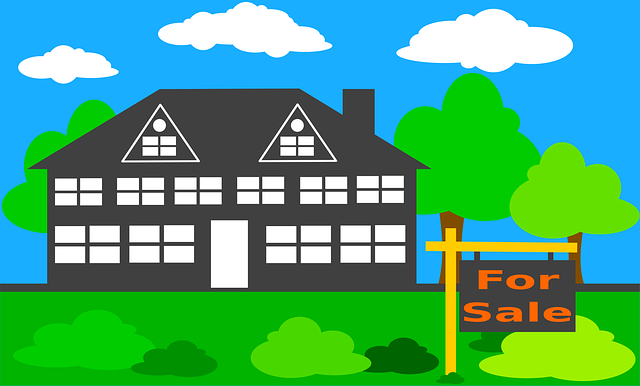You’ve been living in rented homes for years. Now, you feel ready to become a homeowner. But buying a house is a big commitment. This will be one of the most important financial decisions you will make throughout your life. It can get very stressful. This piece will focus on three things to take into consideration when buying your first house.

3 Things to Consider When Buying Your First House
When buying your first house, sometimes people rush into it. They see it as a sign of becoming an adult. In reality, lots of people own houses while still struggling to take charge of their finances.
You need to be prepared because there are many steps and requirements. Mistakes can get very expensive. Here are some of the things you should consider if you’re planning to buy your first house.
1. Start Saving as Early as Possible
It’s not a good idea to make such an expensive purchase if you don’t have savings. Perhaps you’re thinking that you’ll get a mortgage, but there will be other considerable upfront costs such as the down payment, inspection, closing costs, moving costs, and at least some remodeling.
First, you need to have an emergency fund that should cover your living expenses for four to six months. You never know what life throws at you. Maybe you lose your job, your car breaks down, or there’s a medical emergency. This can destabilize your budget, so it’s better to be prepared.

Then there’s the down payment. Most lenders will require a minimum of 3% of the total cost of the house. But if you pay more than that, let’s say 20%, you’ll have significantly lower monthly payments. Being able to afford a larger down payment will also make you more appealing to lenders, so you may be able to get lower interest rates.
They’ll also be interested in any other savings you have, such as your emergency fund. Keep in mind that closing costs will also run from three to five thousand dollars.
2. Make Sure You’re Ready to Buy a House
Assuming you have enough savings, you still have to decide if this is the right time to buy your first house. There’s no rule that says you have to become a homeowner by the time you reach 35.
It’s a big investment, and you have to consider factors like the current housing market, interest rates, and your plans for the future. Even if you have friends or relatives who are telling you that renting is stupid and you’re throwing money away (first of all, they’re wrong), only you know if you’re financially ready and if buying a house makes sense at this point in your life.
Before you start applying for mortgages, you need to review your spending. Write down everything you spend in a month: utilities, groceries, car payments and maintenance, any other debt, clothes, entertainment, savings, etc. This will give you an idea of how much you can afford to spend on mortgage payments.
Then you want to check your credit history. If you want to get a home loan, you’ll need good credit. You can also opt for a subprime mortgage, but you’ll have to pay higher interest rates. Even with a subprime mortgage, you’ll benefit from taking the time to improve your credit score.
Check if there are any credit report errors you can dispute and see if you can pay off some of your debt. Lenders are wary of applicants with too much debt, and even if you get preapproved for a mortgage, if you do something to alter your credit score, such as financing a car purchase, your loan can fall through.
The next step is to find out how much a lender would be willing to give you. Sometimes you think you should get more, but after assessing your monthly income, how long you’ve been at your current job, and how much debt you have, lenders will only be willing to give you 70 or 80% of what you had hoped.
Other times it’s quite the opposite. They are willing to give you a big loan, but that doesn’t mean you should take it. You still have to figure out if you can manage the monthly payments and if you really need a house that is so expensive. You have to think about property taxes, homeowners insurance, maintenance, and improvements, as well as how much you need to set aside for your kids, utilities, food, and entertainment.
3. Shopping Around for a House
Once you’ve saved enough money and you have a clear idea of what you can afford to spend, you can start shopping around for a house. Of course, you still have to consider what you’re looking for in a house. This will depend on where you are in your life right now, but you also have to keep in mind that this is a long-term commitment, so you’re shopping for the house you will need in the future.
Start by finding a trusted real estate agent. There’s so much involved, there are literally 100 ways your agent can help you.
Think about the kind of property that will work best for you. You might want to view some new homes in the suburbs. Or maybe for a townhouse or duplex in a more urban area.
Think about how your needs and wants might change 5 or 10 years down the line. Do you want to get married, and have kids? Are you going to stay at your current job? This will determine the size of the home, location, and amenities. We recommend that you look for houses in neighborhoods with good schools, even if you don’t have or want kids as it will impact the resale value.
Talk to colleagues, friends, family, and real estate agents. They can all be valuable contacts on your hunt for the perfect house. Now that we mentioned real estate agents, don’t go into an open house without first getting a buyer’s agent. It’s common knowledge that realtors get a commission on selling homes, but the seller pays it, not you. An experienced real estate agent can help you decide how much you should bid on a house, negotiate on your behalf, and explain the paperwork involved.
There will be a lot of papers to sign, and even though they’re presented as “standard agreements,” it doesn’t mean that you can’t negotiate. Make sure you take enough time to understand all the terms and review the inspection so you can get the best deal possible.



